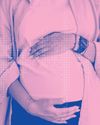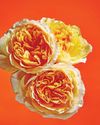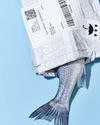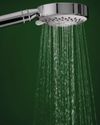
Around the globe, approximately 1.8 billion people menstruate every 28 days. That is a whole lot of blood (roughly 38 million gallons!) being flushed down the toilet or tossed-via pads, tampons, etc.-into a landfill each month. What if, instead, something worthwhile was done with even a fraction of that red "waste"?
That was the question on the mind of Danish medical student Sara Naseri more than a decade ago, when she took an interest in preventive medicine and women's health care. She began looking into existing research on what could be discovered through testing menstrual blood and was shocked by what she found-or, rather, by what she didn't. At the time, the only scientific paper that came up in her search was submitted by the forensics department in New York City and related to period blood in a murder case, recalls Dr. Naseri, who is an ob-gyn.
Yes, you read that right: The only study she could find on the properties of period blood was from a homicide investigation. This jaw-dropping dearth of data spurred Dr. Naseri to action and her resulting research may change the way women's health is tested and treated in the decades to come.
Up Close and (Too) Personal
Let's rewind a bit. For a quick snapshot of a person's health and well-being, the traditional blood draw has long been the gold standard. A vial or two can be tested for everything from a vitamin D deficiency to HIV. Of course, that entails rolling up your sleeve and enduring a painful prick in a collection process that hasn't changed much over the decades. (It's worth noting that attempts at advancing this technology haven't always gone well.
This story is from the January - February 2024 edition of Women's Health US.
Start your 7-day Magzter GOLD free trial to access thousands of curated premium stories, and 9,000+ magazines and newspapers.
Already a subscriber ? Sign In
This story is from the January - February 2024 edition of Women's Health US.
Start your 7-day Magzter GOLD free trial to access thousands of curated premium stories, and 9,000+ magazines and newspapers.
Already a subscriber? Sign In

Silver Linings Playbook
You can learn how to become more optimistic, no matter your starting point.

THE RISE of the GENTLE C-SECTION
How a new surgical practice is transforming women's childbirth experience

The Next Health Tech Revolution Is Here
From smart watches to tracking apps, devices are providing valuable insights.

Planting New Roots
Six late-bloomer lesbians\" share their stories of how they learned to live—and love—authentically.

GROWING FORWARD
Country singer KELSEA BALLERINI is working harder than ever to shake (and remake) old patterns that no longer serve her. Here, she opens up about her intentional journey and shares her mental health musts.

"Learning to Ski at 57 Helped Me Embrace Uncertainty"
Tackling something new-and terrifying was exactly what one freshly single midlifer needed.

Grain Gains
This cozy quinoa salad paired with juicy chicken thighs clocks nearly 50 grams of protein.

Healthy Eats, Delivered
It might be possible to say soodbye to grocery stores forever. But should you? yee

Shower Power
How one writer improved her mental health by connecting with her body

Scent Solutions
What was once a taboo subject-body odor-is now a convo more and more people are happily having.